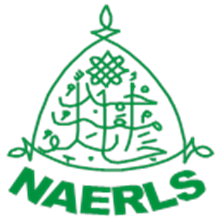Welcome Message
Welcome to the official portal of National Agricultural Extension and Research Liaison Services (NAERLS).
NAERLS is one of the 18 National Agricultural Research Institutes (NARIs) under the Federal Ministry of Agriculture and Rural Development. The Institute is responsible for development, collation, evaluation and dissemination of proven agricultural innovations and to research on extension methodologies and policy. The extension and research activities of the Institute take into account the long-term ecological, economic and social consequences of changes in rural life and linkages. These activities are conducted in partnership with NARIs, ADPs and other national and international collaborators.
Agriculture remains the foundation of the Nigerian economy, providing employment for about 35% of Nigerians, despite the presence of oil in the country since 1958. It is also the main source of livelihood for the population.
As at June 2022, there were over 100 million farmers, over 82% of which are smallholders; the sector contributed over 24% in Q2 of 2022 (over 22% since 2005); it has a robust Research and Extension system.
The country has about 70.8 million hectares of agricultural land: distributed among arable land area of 34 million hectares, 6.5 million hectares for permanent crops, and 30.3 million hectares on meadows and pastures. Maize, cassava, cowpea corn and yam are the major crops among households. Generally, about 92% of farming households practise crop farming; 7.3% households in the south-south zone practise aquaculture, 69.3% in the northwest raise livestock.
The Agricultural Performance Surveys for 2015 to 2022 show that the Nigerian agricultural sector faces recurrent challenges of: limited access to land (average of 1.8 ha/farming household), very low level of irrigation development (less than 1% of cropped land under irrigation), limited adoption of research findings and technologies, high cost of farm inputs, poor access to credit, lack of collateral security by the farmers, inefficient input (especially fertilizer) procurement and distribution, insufficient storage facilities, poor access to markets, and more recently, effects of climate change.
One of the most serious challenges concerns inadequate funding/ attention to extension activities, which has led to a very low EA/FF ratio, averaging 1:6,000 in 2021. The consequence is that farmers are largely unreached, leading to low technology adoption and poor agricultural outcomes.
Currently, the Federal Government is focusing on agricultural transformation through commercialization at the small, medium and large-scale enterprise levels. NAERLS therefore welcomes any collaboration/ partnership that is in line with this focus of government: in the form of farmers training, technology deployment, extension research, capacity building for extension agents/ personnel, farm mechanization/ simple labour-saving technologies, information and knowledge management, agricultural media packaging, ICTs, etc.
NAERLS has 6 programme areas namely: Agricultural Communication Research, Agricultural Extension and Economic, Agricultural Performance and Evaluation, Training and Outreach, Agricultural Information Management, and Agricultural Policy. There are also specialised departments, which include e-Extension, Crop and Forestry, Livestock and Fisheries, Agricultural Engineering and Irrigation, Agricultural Extension and Economics, Food Technology, and Agricultural Media. The Institute has 6 Zonal Offices, one in each of the 6 agro-ecological zones of the country – Umudike (South-east), Ibadan (South-west), Maiduguri (North-east), Badeggi (North-central), Kano (North-west), and Port Harcourt (South-south).
The Institute has over 700 employees, including over 90 Extension Specialists, and requires an annual operating budget of about $7.8 million.
Welcome to the electronic platform of NAERLS, the authority in agricultural extension and research in Nigeria!

